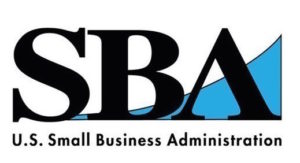A few months ago, the U.S. Supreme Court held that the VA is mandated to set aside certain contracts for veteran-owned small businesses (VOSBs) when “procuring goods and services pursuant to a contracting preference under [Title 38] or any other provision of law.” Known as the “Rule of Two,” this mandatory preference applies if the solicitation’s contracting officer has a reasonable expectation that two or more small business concerns owned and controlled by veterans will submit offers and that the award can be made at a fair and reasonable price that offers the best value to the U.S. (38 U.S.C. § 8127(d)).
Since this ruling, the VOSB community has waited with bated breath to see how the VA would implement this mandate. Not only that, but it has waited to see if the VA would try to find ways around it. According to my contacts in the veteran business community, there have been several solicitations where the VA has failed to set aside the opportunity for VOSBs, or has failed to conduct market research to see if two or more responsible VOSBs would make fair and reasonable offers. These VOSBs that have been affected, however, have been afraid to publicly challenge the VA via a bid protest due to fear of retaliation.
One VOSB, however, is boldly going where no one else will.
On August 25, PDS Consultants, Inc. (PDS), an SDVOSB headquartered in New Jersey, filed a complaint with the U.S. Court of Federal Claims (CoFC)(Case No. 16-1063C). PDS seeks review of the VA’s continued ordering of certain vision-related products from Winston-Salem Industries for the Blind (Winston-Salem) for certain Veterans Integrated Service Networks (VISNs), despite not first conducting the required Rule of Two analysis. PDS also seeks review of the recent VA Policy Memorandum that authorizes orders from Winston-Salem without first conducting a Rule of Two analysis. Further, it asks for injunctive relief ordering the VA to adhere to its guidelines and the direction from the CoFC in Angelica Textile Services, Inc. v. United States, 95 Fed. Cl. 208 (2010)(requiring that Veteran Benefits Act and related VA procedures be given priority over the Javits-Wagner-O’Day Act).
This is an important case for VOSBs across the board because it should confirm the VA’s obligation to follow the Rule of Two, as well as the preference for the Veterans First Act over the Javits-Wagner-O’Day Act. It may also provide some much-anticipated guidance on the VA’s requirement to conduct market research pursuant to the Rule of Two, as well as further elaborate on the policy memorandum the VA issued this summer to implement Kingdomware.
HOWEVER, just because there’s a lawsuit, that doesn’t mean the court will issue a substantive decision. At this point, the CoFC has issued a scheduling order indicating that a decision won’t come for several months. There is the chance that the VA will take corrective action in the interim. If this happens, the parties may settle and the case be dismissed – resulting in the CoFC not issuing the public smackdown (to use a legal term) of the VA that many veteran business owners want.
At any rate, this is the case the veteran business community has been waiting for since Kingdomware. Stay tuned. . .
A copy of the Complaint filed in the CoFC may be accessed here. Also, the VA’s policy memorandum implementing Kingdomware is here.
Did you find this article informative? If so, sign up for Sarah Schauerte’s legal blog on veteran issues at: https://legalmeetspractical.com.

PDS’s case before the CoFC continues the fight to ensure the VA puts VOSBs first in contracting preferences.






